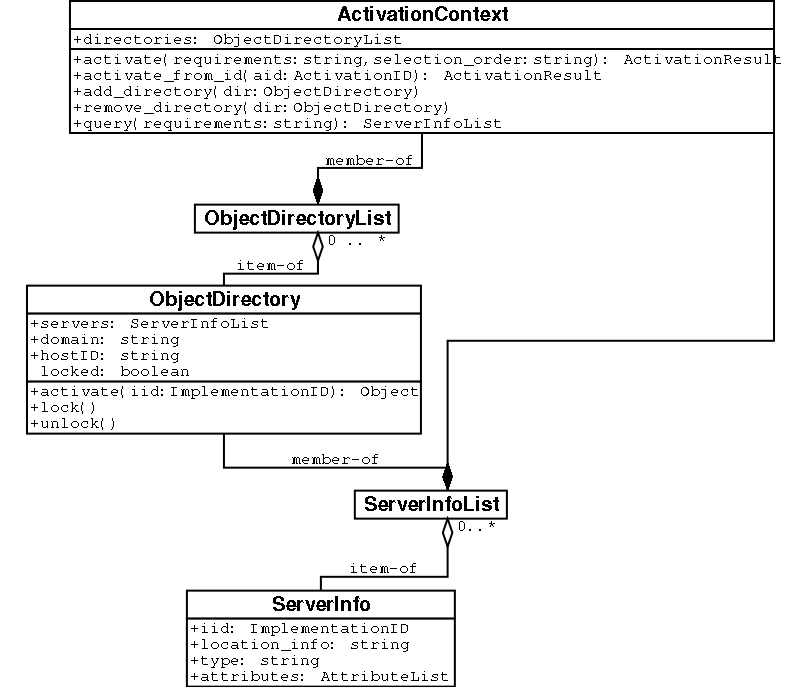| Bonobo Activation API Reference Manual |
|---|
The Bonobo Activation server is split in 2 parts: the ObjectDirectory which contains the list
of all servers on a given machine, and the ActivationContext which contains the
list of all ObjectDirectories. It contains by default the local ObjectDirectory
and you can add inside other distant ObjectDirectories.
Each server is described by its .server file which contains among others the IDL interfaces this server implements, some specific properties and an IID (Implementation ID). Each IID has to be unique. Its format is pretty simple:
OAFIID:program_name:UUID
The UUID is supposed to be generated by the uuidgen program. program_name has to be an ASCII string without comma (','), square bracket ('[]'), or forward slash ('/') characters.
Each CORBA server on a given machine is thus identified in a unique way. CORBA servers on different machines are uniquely identified through the AID (Activation ID). The AID format is also pretty simple:
OAFAID:[IID,user,host,domain]
user is the user unix login. host is a DNS domain name or stringified IP address. domain is is a string describing what use area the object has.
One important thing to understand about these AID and IID is that the
ObjectDirectory deals exclusively with IIDs (it is stritcly local) and
the ActivationContext deals with AIDs since it can associate a set of
user, host and
domain to each IID it gets from one of its
ObjectDirectory.
As a result of this architecture, activation requests should go to the
ActivationContext and
registrations to the ObjectDirectory.
The idea behind this is that when you make a request on the ActivationContext (like query),
it will:
make sure it has an up-to-date list of all the Servers with a call to
ObjectDirectory::get_serversfor each of its ObjectDirectory.loop through this list to try to satisfy the query with the given requirements and sort-order.
activate the corresponding object with
ObjectDirectory::activate(this is not exactly what happens since there are optimizations to save this call but the general idea is right).

